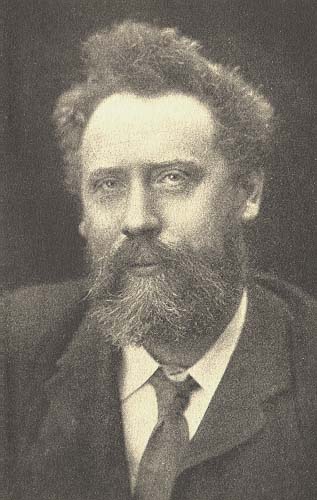William Ernest HENLEY (1849 - 1903) was an English poet, critic and editor, best remembered for his 1875 poem "Invictus".
At the age of 12, Henley fell victim to tuberculosis of the bone. A few years later, the disease progressed to his foot, and physicians announced that the only way to save his life was to amputate directly below the knee. It was amputated when he was 25.
Victorian text-books professing stoicism were popular in English public schools, and in 1875, the Stoic ideal of indifference in the face of suffering inspired Henley to write his famous stiff upper lipped poem "Invictus" from a hospital bed. Despite his disability, he survived with one foot intact and led an active life until his death at the age of 53.
The author wishes to tell us that we should be the manager of our own life. So even if there are obstructions/challenges in our life we should defeat them and should become the master of our own fate.
While incarcerated on Robben Island prison, Nelson Mandela recited the poem to other prisoners and was empowered by its message of self mastery. In the 2009 movie Invictus, produced and directed by Clint Eastwood, the poem is referenced several times.
ENGLAND, MY ENGLAND
WHAT have I done for you,
England, my England?
What is there I would not do,
England, my own?
With your glorious eyes austere,
As the Lord were walking near,
Whispering terrible things and dear
As the Song on your bugles blown,
England
Round the world on your bugles blown!
Where shall the watchful sun,
England, my England,
Match the master-work you've done,
England, my own?
When shall he rejoice agen
Such a breed of mighty men
As come forward, one to ten,
To the Song on your bugles blown,
England
Down the years on your bugles blown?
Ever the faith endures,
England, my England
'Take and break us: we are yours,
England, my own!
Life is good, and joy runs high
Between English earth and sky:
Death is death; but we shall die
To the Song on your bugles blown,
England
To the stars on your bugles blown!'
They call you proud and hard,
England, my England:
You with worlds to watch and ward,
England, my own!
You whose mail'd hand keeps the keys
Of such teeming destinies,
You could know nor dread nor ease
Were the Song on your bugles blown,
England,
Round the Pit on your bugles blown!
Mother of Ships whose might,
England, my England,
Is the fierce old Sea's delight,
England, my own,
Chosen daughter of the Lord,
Spouse-in-Chief of the ancient Sword,
There 's the menace of the Word
In the Song on your bugles blown,
England
Out of heaven on your bugles blown!
INVICTUS *
Out of the night that covers me,
Black as the pit from pole to pole,
I thank whatever gods may be
For my unconquerable soul.
In the fell clutch of circumstance
I have not winced nor cried aloud.
Under the bludgeonings of chance
My head is bloody, but unbowed.
Beyond this place of wrath and tears
Looms but the Horror of the shade,
And yet the menace of the years
Finds and shall find me unafraid.
It matters not how strait the gate,
How charged with punishments the scroll,
I am the master of my fate:
I am the captain of my soul.
(*Invictus is a latin term that mean unconquered.)
OVER THE HILLS AND FAR AWAY
WHERE forlorn sunsets flare and fade
On desolate sea and lonely sand,
Out of the silence and the shade
What is the voice of strange command
Calling you still, as friend calls friend
With love that cannot brook delay,
To rise and follow the ways that wend
Over the hills and far away?
Hark in the city, street on street
A roaring reach of death and life,
Of vortices that clash and fleet
And ruin in appointed strife,
Hark to it calling, calling clear,
Calling until you cannot stay
From dearer things than your own most dear
Over the hills and far away.
Out of the sound of the ebb-and-flow,
Out of the sight of lamp and star,
It calls you where the good winds blow,
And the unchanging meadows are;
From faded hopes and hopes agleam,
It calls you, calls you night and day
Beyond the dark into the dream
Over the hills and far away.


